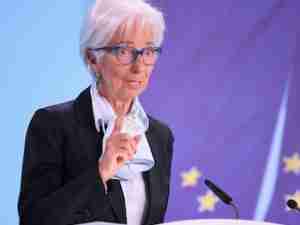"Let's be clear: IP (intellectual property) theft in overseas markets is a job killer, and it's an export killer," U.S. Trade Representative Ron Kirk said in a speech to mark World Intellectual Property Day.
As the United States encourages companies to pour more money into the development of environmentally friendly green technologies, "we must remain vigilant that the investments that American inventors make are not undermined by lax enforcement of intellectual property rights," Kirk said.
Trade in counterfeit goods costs tens of billions of dollars to the United States alone.
A study done for the U.S. Chamber of Commerce estimated that industries including chemicals, petroleum, computer equipment, communications, semiconductors, autos, medical equipment and aerospace technologies which rely heavily on patents and other forms of intellectual property pay their workers about 60 percent more than non-IP-based industries.
IP industries also account for about 60 percent of total U.S. exports, rising to $910 billion in 2007 from $665 billion in 2000, and about 65 percent of U.S. employment in sectors involved in trade, the NDP Consulting study found.
Meaningful Reforms Sought
"The study clearly demonstrates the impact that IP has on our productivity and competitiveness, and it emphasizes the need to protect IP rights both in the U.S. and internationally," said Mark Esper, executive vice president of the Chambers' Global Intellectual Property Center.
U.S. software, music, film and book companies estimate they lose billions of dollars in sales each year because of piracy in China, Russia, India and dozens of other countries.
The United States, the European Union, Japan, South Korea and Switzerland and other countries with big creative industries and other innovative sectors have been negotiating an Anti-Counterfeiting Trade Agreement aimed at stronger enforcement of intellectual property rights.
Deputy U.S. Trade Representative Miriam Sapiro told reporters the United States hoped to finish those negotiations soon. But she evaded a question about what charter members of the pact could do to persuade countries with poor records on intellectual property rights to join.
On Friday, the U.S. Trade Representative's office will issue its annual list of countries with the worst records on combating pirating and counterfeiting.
"This is not just a once-a-year report card, but rather the foundation for a year-round process used to secure meaningful reforms," Sapiro said, adding the United States would not hesitate to bring cases at the World Trade Organization if necessary to enforce intellectual property rights.
China and Russia are expected to top the list due out on Friday, as they have for a number of years. (Reuters)



